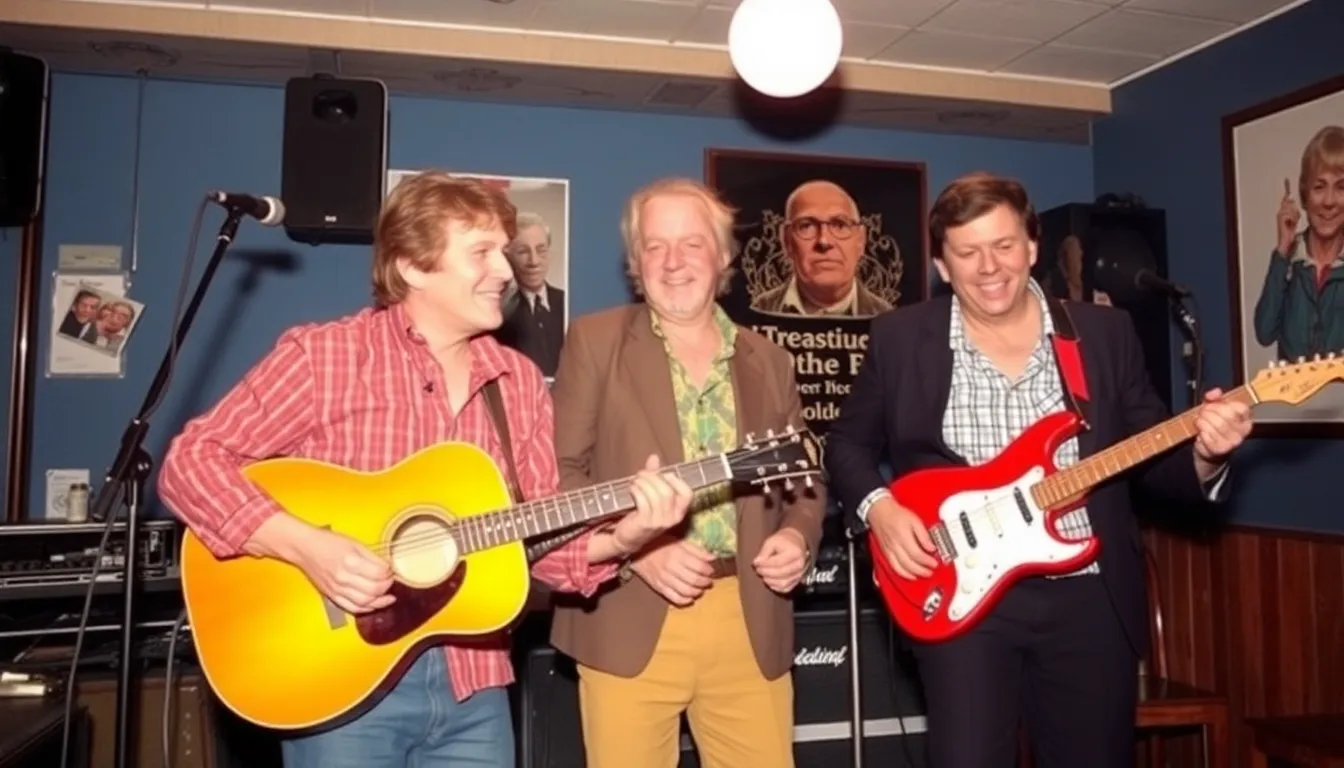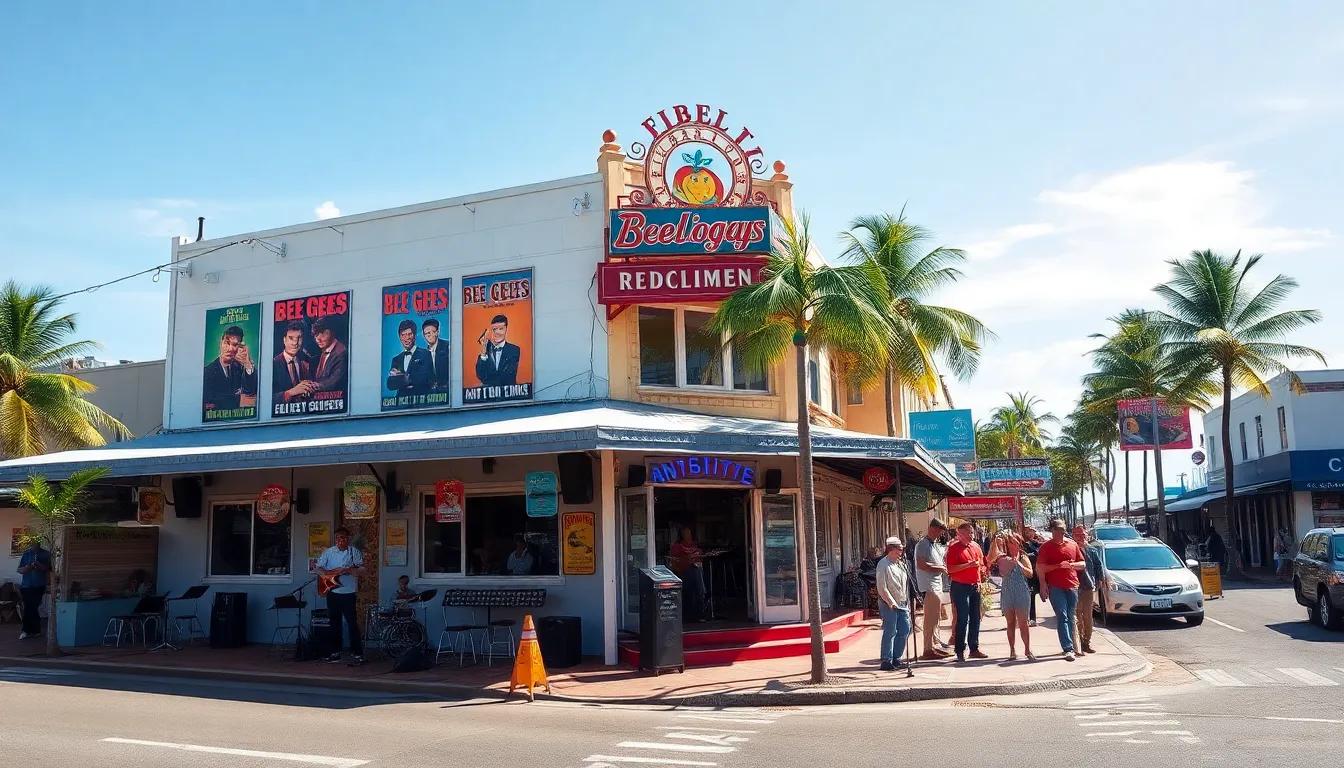When you think of the Bee Gees, images of disco balls and smooth falsettos probably come to mind. But where did these musical legends actually hail from? It’s a question that might just have you dancing in your seat. The Bee Gees, known for their infectious melodies and harmonies, have roots that stretch across continents, making their story as rich as their discography.
Born on the sunny shores of the Isle of Man and raised in Australia, the Gibb brothers took the world by storm with their unique sound. From their early days as pop sensations to disco royalty, their journey is a testament to how a little bit of island charm mixed with Aussie grit can create music magic. So let’s dive into the origins of the Bee Gees and discover what shaped these legendary voices.
Table of Contents
ToggleThe Origins Of The Bee Gees
The Bee Gees emerged from a unique background that significantly impacted their music. The Gibb brothers, Barry, Robin, and Maurice, grew up in two distinct locations that shaped their artistry.
Birthplace Overview
The Isle of Man served as the birthplace of the Bee Gees. Born in 1946 and 1949, Barry and Robin respectively entered the world in St. John’s. Maurice followed closely, arriving in 1949. The family moved to Redcliffe, Queensland, Australia when the brothers were young. Australia’s diverse culture and vibrant music scene influenced their sound and style throughout their careers.
Family Background
The Gibb family’s musical tradition deeply impacted the brothers. Their mother, Barbara, had a strong background in music, sharing her passion with her children. Their father, Hugh, played several instruments, introducing the brothers to a variety of musical genres. This environment nurtured their early interest in songwriting and performance. Family gatherings often included musical performances, instilling a love for music that followed the brothers into their professional lives.
Musical Beginnings

The Bee Gees’ musical journey began during their formative years in Australia. Their relocation from the Isle of Man to Brisbane in 1958 marked a significant shift in their lives.
Early Years In Australia
Growing up in Redcliffe, the Gibb brothers immersed themselves in music early on. They often performed at local venues, showcasing their harmonies and songwriting skills. Exposure to a diverse music scene shaped their artistic vision. Barry’s guitar skills complemented the rich vocal talents of Robin and Maurice. School performances and family gatherings provided platforms for them to refine their craft. Alongside this, the brothers developed a bond for music that would eventually lead to remarkable success.
Influences And Inspirations
Family played a pivotal role in their musical development. Both parents encouraged creative expression, with their mother, a trained singer, and their father, a bandleader. The brothers absorbed various music styles, from rock and roll to traditional pop. American artists like Elvis Presley and Little Richard inspired them greatly. Australian culture and local music also influenced their sound. The blend of these experiences informed the Bee Gees’ distinctive style, setting them on the path to international stardom.
Career Milestones
The Bee Gees achieved significant milestones throughout their career, reflecting their evolution as artists.
Breakthrough In The 1960s
The Bee Gees burst onto the music scene in the 1960s. Their first major hit, “New York Mining Disaster 1941,” reached the top 20 in the U.S. in 1967. Chart success continued with songs like “To Love Somebody” and “Massachusetts,” showcasing their harmonies and evocative lyrics. The brothers became known for their distinct sound, characterized by rich vocal harmonizations. Their unique approach led to successful tours and growing popularity in both Australia and internationally. By the late 1960s, they emerged as prominent figures in the pop music landscape, paving the way for future endeavors.
Transition To Disco Era
The Bee Gees successfully transitioned into the disco era in the mid-1970s. The release of “Jive Talkin'” in 1975 marked a turning point, solidifying their new sound. Their work on the “Saturday Night Fever” soundtrack catapulted them to unprecedented heights. Hits like “Stayin’ Alive” and “How Deep Is Your Love” dominated the charts, showcasing their ability to adapt. The blend of pop sensibility with disco rhythms elevated their status as icons of the genre. Their influence on disco music and culture remains significant, ensuring their place in music history.
Legacy And Impact
The Bee Gees left an indelible mark on the music industry, significant for their contributions and influence. Their fusion of pop, rock, and disco transformed musical expectations in the late 20th century.
Contributions To Music
Innovative songwriting defined their career. The Bee Gees penned timeless classics, weaving intricate harmonies and emotional depth. Their collaborations with various artists further enriched the music scene. By combining various genres, they set new standards for songwriting excellence, emphasizing melody and lyrical sophistication. Songs like “Night Fever” and “Tragedy” showcased their ability to capture the essence of an era, making their music resonate widely. Impacting the disco movement, they redefined how pop music could be produced and performed.
Influence On Future Artists
The Bee Gees inspired a generation of musicians across genres. Artists such as Justin Timberlake and Dua Lipa cite them as influences, demonstrating their enduring legacy. Numerous artists have embraced their vocal harmonies, crafting soundscapes that echo the Bee Gees’ style. The group’s innovative approach to production influenced the development of contemporary pop and R&B. Newer artists often explore similar themes, reflecting emotional experiences as the Bee Gees did. Their impact reaches far and wide, ensuring that their musical footprint remains relevant today.
Conclusion
The Bee Gees’ journey from the Isle of Man to global superstardom showcases their remarkable talent and adaptability. Their unique upbringing in Australia played a crucial role in shaping their musical identity. With a rich blend of influences and a commitment to their craft, the Gibb brothers created a legacy that transcends generations.
Their ability to evolve with the music landscape set them apart, allowing them to dominate both the pop and disco scenes. The impact of their innovative songwriting and harmonies continues to resonate in today’s music, inspiring countless artists. The Bee Gees remain a testament to the power of family, creativity, and the enduring nature of great music.




